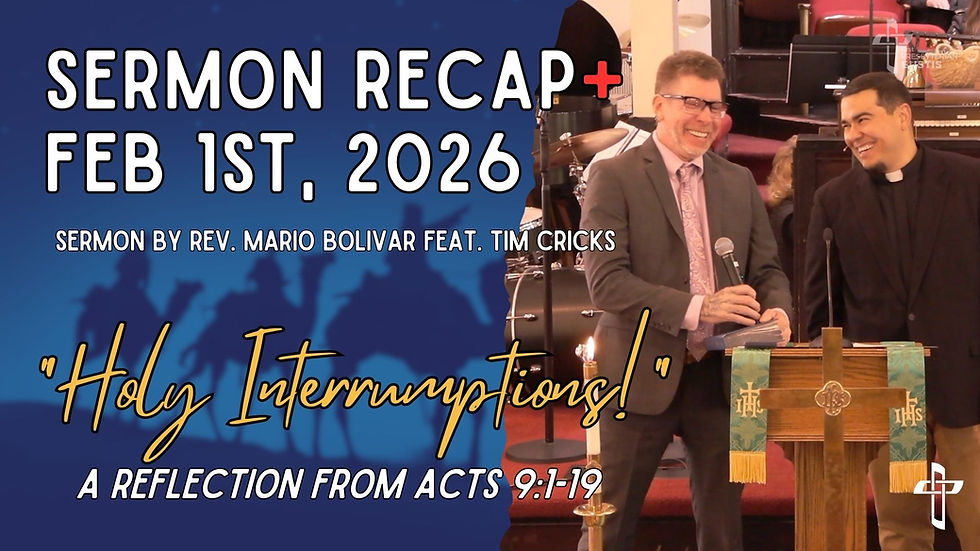Spiritual, not religious...
- Mario Bolivar
- Jul 10, 2024
- 3 min read
-- Still chewing on this... Not my final words on the subject.
For some, it's a declaration of independence. For others, it is a critique of how traditional practices won't cut it. As someone deeply intertwined in organized religion, I've come to face with these statements time after time; in fact, I had twice on my way to Utah for General Assembly 226th and once on my way back, and now have come to a profound realization: what truly matters isn't the label but the essence of our faith lived out in love and action.
It's natural to feel defensive when hearing this phrase (Like, there is something wrong with you!), especially from a stranger. I will say to resist the urgency of arguing against it, but equally important will be to resist the urge to 'dusk your sandals off and walk away.' for this isn't the scenario of (Mark 6:1-13)
Today, I will encourage you to stop and listen. In fact, if Christians would listen and love more, we wouldn't be experiencing the massive exodus from faith that we currently face.
Many religious institutions (Denominations and Non-denominations) struggle to connect meaningfully with people today. High attendance or lack thereof at your church doesn't mean that you are successful or unsuccessful in Christian formation or discipleship. Much like having none, some, or fewer children doesn't hint at the healthiness or unhealthiness of a marriage.
The traditional approach of "come to church and deepen your spirituality" is outdated and disconnected from the realities of modern life. However, spirituality—our innate connection to something else—is recognized as a fundamental aspect of human existence, one that evolves and strengthens through personal experiences and diverse practices.
So when people say, "Spiritual, but not religious," I might not agree, but I understand.
So where do we go from here? I am glad you asked.
Over the past few years, I've embraced a different approach—one focused not on persuading others to adopt my beliefs but on living out my faith authentically. It's a journey characterized by humility, openness, and a commitment to love and serve others without judgment or agenda--whether they like me or dislike me. This path isn't about imposing doctrines or arguing theological points; it's about embodying the teachings of compassion, forgiveness, and empathy that lie at the heart of my faith tradition. Or, in lay terms, if they wish to burn their side of the bridge, that's okay; you keep watering your plants.
What I've discovered is that actions speak louder than words. People are more receptive to love demonstrated through service and kindness than to theological points. Our faith becomes tangible and relevant when expressed in acts of solidarity with the marginalized, in efforts to heal divisions, and in genuine efforts to understand and support those around us.
This evolving prescription of faith is not exclusive to any one tradition or practice. It's a universal call to humanity to embody the values that transcend religious labels—values of love, justice, and humility. It's about fostering a world where spiritual depth is measured not by adherence to doctrines but by the transformative impact of our lives on others.
so when people tell you "Spiritual, but not religious," it is not a cop-out but a call for you to reflect and reveal the love of Christ in all that we do. The essence of our beliefs lies not in rituals or doctrines alone but in how we live and interact with those around us.





Comments